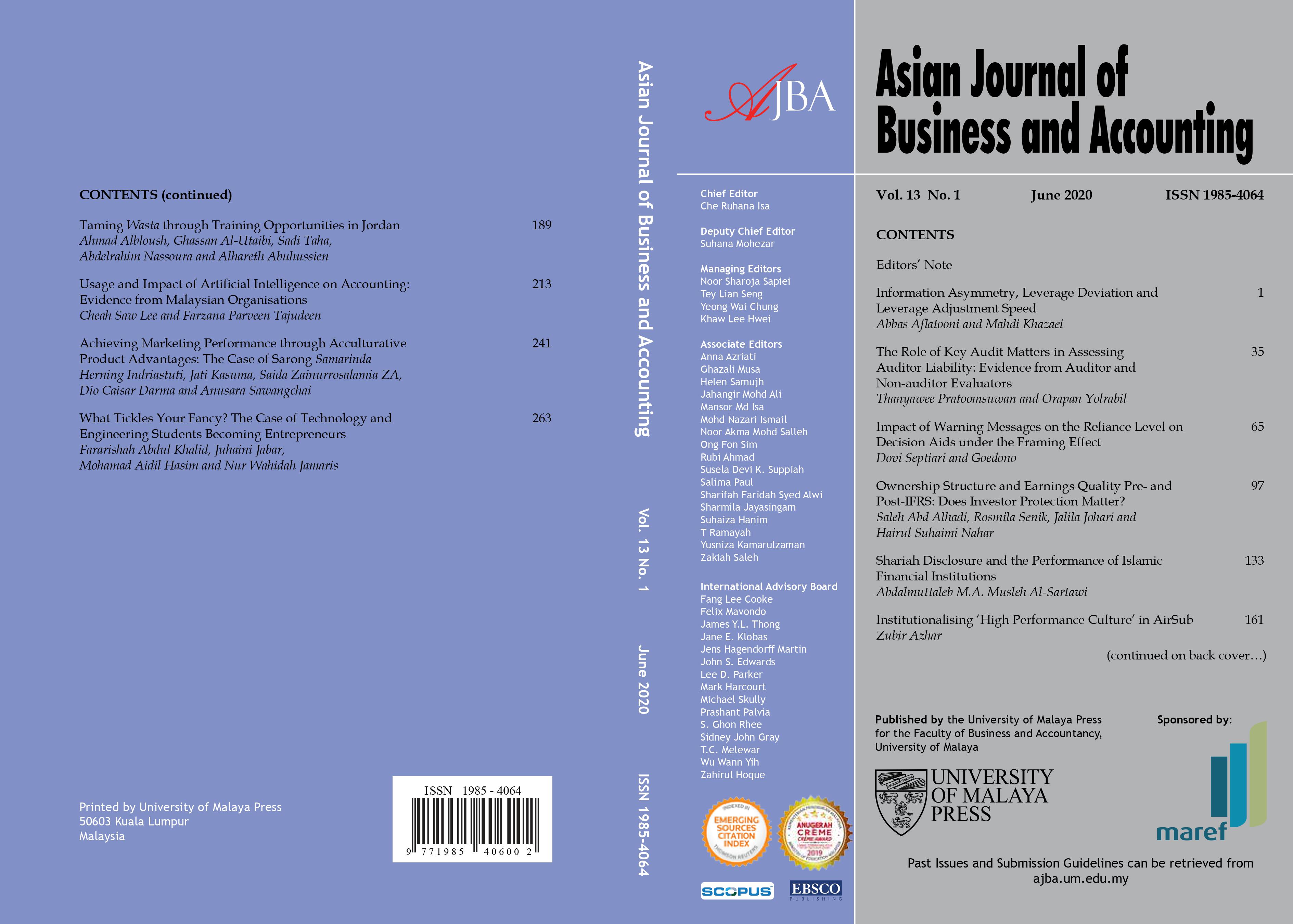Institutionalising High Performance Culture in AirSub
Main Article Content
Abstract
Manuscript type: Research paper
Research aims: This study aims to examine the institutionalisation of high performance culture (HPC) in a Malaysian government-linked company’s subsidiary that recently undertook a re-engineering exercise to improve financial performance. Specifically, it analyses the institutionalisation of HPC by relating to the role of performance measures in influencing the process of change.
Design/Methodology/Approach: The process of institutionalising the HPC in the studied subsidiary is analysed using a qualitative research approach. This study presents an interpretive case study by drawing on institutional theory which focuses on the issue of legitimacy with a special reference being made to the hierarchical complexity of the subsidiary’s business model in managing airport operations.
Research findings:The re-engineering exercise undertaken by the subsidiary, which aimed at promoting HPC that concerned financial performance improvement, appeared to have legitimised institutional relationships with various stakeholders. While this promotion appeared to correspond well with its commercial and technical objectives that drove its business financially, there seemed to be much discourse which related to its past role in rendering public services.
Theoretical contributions/Originality: This study contributes to understanding the legitimacy at the hierarchical-organisational level. It highlights the importance of sustaining the legitimacy from being challenged by any single source of pressure which appeared to have been competing with (an)other pressure(s).
Practitioner/Policy implication: Although HPC had shifted the orientation of the subsidiary from being largely concerned with technical operations to also considering commercial activities, the shift towards emphasising the importance of financial performance (measures) had not fully eliminated the public sector’s path dependence. Thus, there is a need for business managers (including accountants) to appreciate business complexity in making informed decisions by leveraging on appropriate performance measuresthat would consequently impact organisational performance.
Research limitation/Implication: This study has analysed a single organisation’s subsidiary. Hence, any generalisation to other subsidiaries is deemed inappropriate.
